French Acadian Grand Pré 1755 children's book reflects the World Humanitarian Refugee Crisis
A French Acadian Grand Pré 1755 children's book is making news as it empathetically addresses the current World Humanitarian Refugee Crisis.

As an expert deeply invested in multidisciplinary contemporary art and literature, I can vouch for narratives' compelling, transformative potential. This potency is not confined to aesthetics but can dynamically shape societies and influence thought patterns on a substantial scale. Narratives' prowess becomes particularly palpable when fostering empathy, an indispensable sentiment necessary for humane comprehension and acknowledgment of the complex predicaments faced by refugees entrapped in the current global humanitarian crisis.
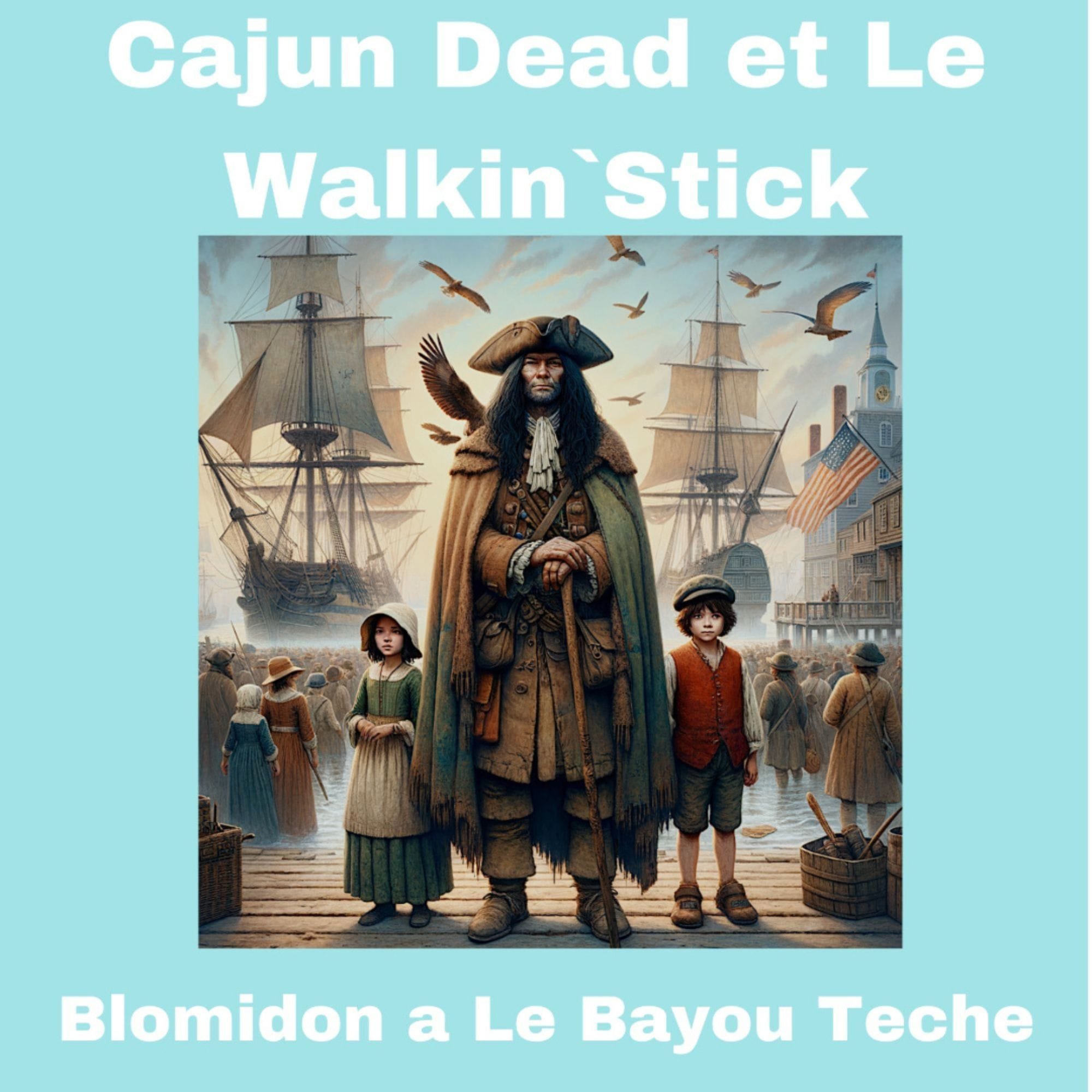
Volume 1: Cajun Dead and Le Walkin`Stick English version:
Volume 1: Cajun Dead et Le Walkin`Stick Version Français:
Conventional logic might not readily reveal the next link in this chain of thought. One might ask, how can the empathetic potential of narratives relate to refugees? I propound upon this link, drawing upon the timeless Acadian children's tales documenting the distressing events entailing the Grand Pré Diaspora of 1755. These poignant tales that recount stories of displacement, deprivation, and deadly wars offer insightful parallels to our contemporary crisis that has uprooted millions from their homelands for the past 400,000 years.
Theriault uses the Power of Storytelling to foster empathy.

At first glance, the connection between the Acadian narratives of a bygone era and present-day refugee struggles may seem strained, even improbable. Still, a deeper probing unravels a rich tapestry of shared experiences and resilience. Though unique in their era, the 18th-century Canadian Maritime Provinces sagas are similar to the 21st-century Middle East, Africa, or Asia stories. These Acadian tales, steeped in the bitter realities of displacement and desperate struggle for survival, serve as an empathetic bridge to better understand and connect with the raw, naked humanity of people inextricably caught in today's refugee crises.

Vol 2:Cajun Dead et Le Walkin`Stick Bayou Teche to Saint Pierre et Miquelon
Vol2: Cajun Dead et Le Walkin`Stick Bayou Teche a Saint Pierre et Miquelon
In an increasingly polarized world, these tales offer a poignant reminder of the universal human capacity for resilience, for holding on to identity, traditions, and community in the face of overwhelming adversity. Forced migration, cultural resilience, and fierce determination mark the Acadian experience - themes that are echoed profoundly in the lives of refugees today. In these shared themes and stories, we can perceive refugees not as victims enmeshed in tragedy but as beings of unparalleled strength and resilience.
Casting refugees in a different light, a light that highlights their resilience, invites a radical shift away from the tragedy narrative too often peddled. It allows for an alternative discourse on forced displacement that recognizes and honours the unfathomable strength required for survival and adaptation in the face of adversity. This discourse posits refugees as active participants in their life stories and not just mere recipients of unfortunate circumstances.
Through the insightful lens of the Grand Pré narratives of 1755, the elusive links between the Acadian tales and today's refugee crises become clearer. This understanding moves beyond the myopic historical value often attributed to such narratives and appreciates their searing resonance with today's global narrative of displacement. It places these tales in a broader, contemporary context, revealing a world struggling with violence, forced displacement, resilience, and the persistent undertones of cultural identity.
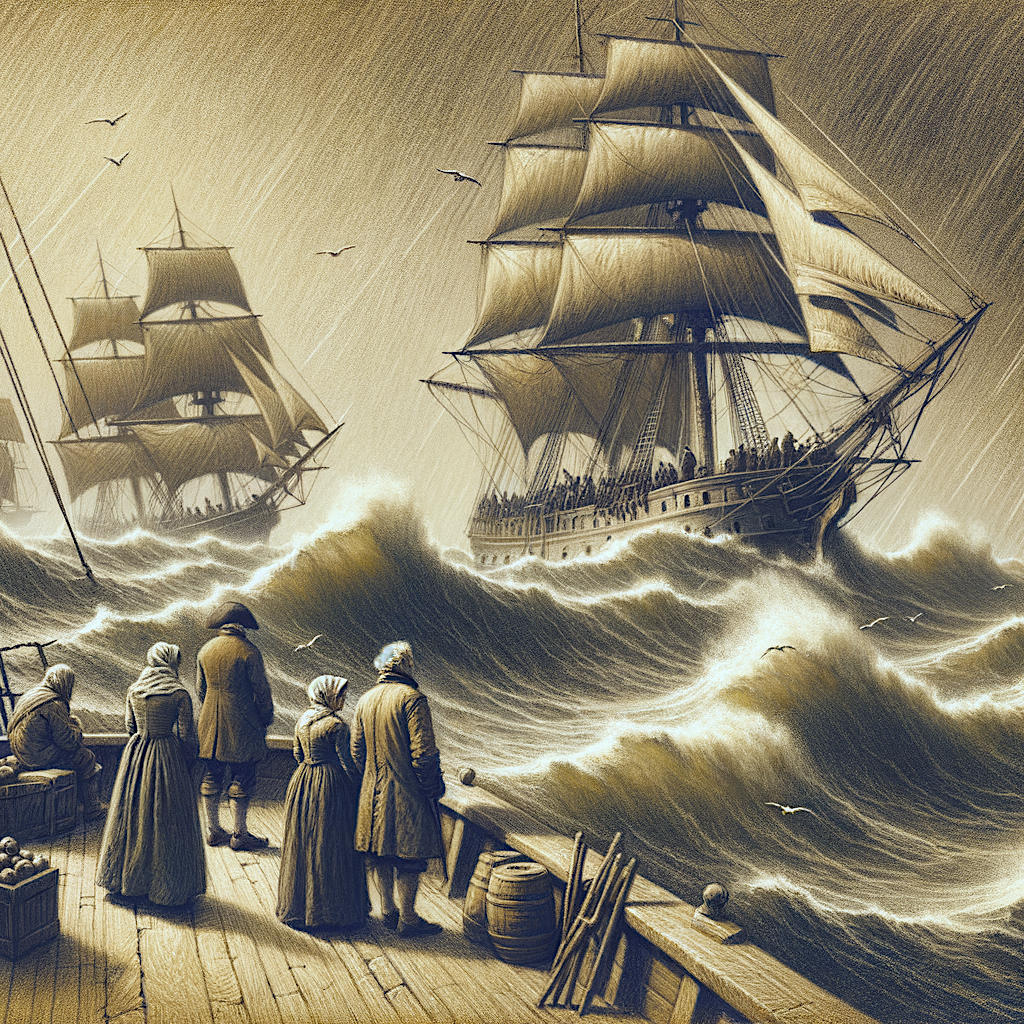
Championing the empathetic power of these Acadian tales ushers in a potent challenge to society's prevailing stereotypes of refugees. Their stories, far from being uniform testaments of tragedy, are unique narratives imbued with strength, determination, and resilience. These truths find reflection in the immersive world of Acadian tales, nudging readers to shift their perceptions and engage more honestly with the complex realities of the refugees today. Doing so might lead us closer to a more inclusive, compassionate world in which the narratives of displaced people are valued and integrated into the fabric of our global society's future.
"Lessons from the Acadian Tales: A Study in Resilience and Determination"
The stories that have enchanted Acadian children across centuries bear resonant echoes of resilience and determination. These narratives, bathed in the deeper hues of forced migration and cultural endurance, have been instrumental in painting vivid images of the fortitude inherent in human nature. As we explore these tales, we uncover new dimensions of human potential and resilience, often overlooked or forgotten in the clamour of modern-day discourses. Accessing this potential is more elusive than it might appear, for, in these narratives, we find a powerful tool for empathy building.
The Acadian experience, retold in countless fireside stories and worn-out family albums, is a study of survival against overwhelming odds. Its history is steeped in forced dislocations, unyielding struggles, and an underlying interdependence and community cohesion ethos. This ethos, herculean in its persistent continuity, reflects the Acadian people's fierce determination to hang onto their language, their traditions, and their collective identity in the face of ruinous circumstances. The striking similarities between this historical narrative and the contemporary realities refugees face today testify to the chronicles of human resilience and survival.
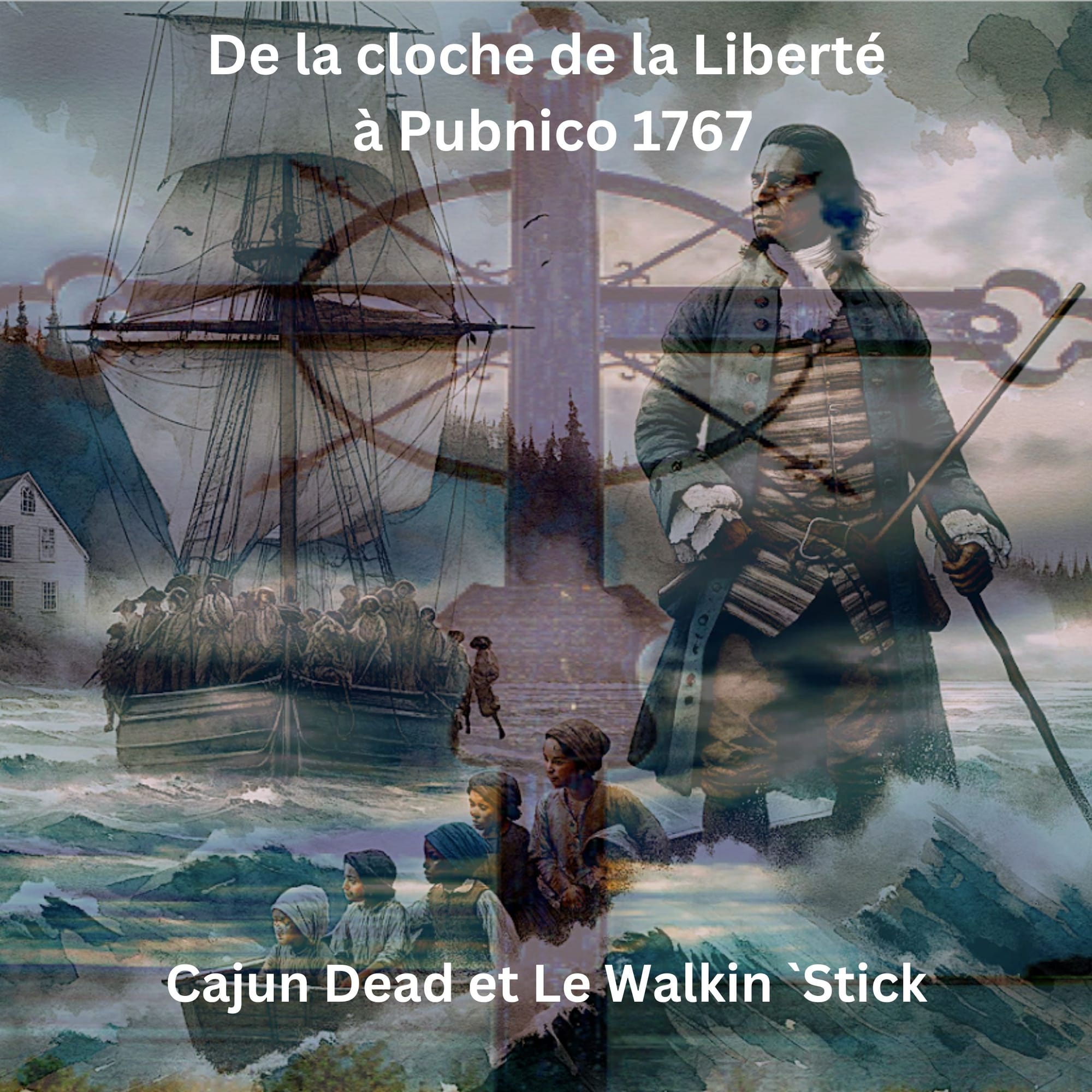
Vol3: Cajun Dead et Le Walkin`Stick: From the Liberty Bell to Pubnico 1767
Vol3: Cajun Dead et Le Walkin`Stick De la cloche de la Liberté à Pubnico 1767
When we turn the pages of Acadian tales, we encounter not hapless victims of history or passive recipients of a foreordained fate but dynamic agents of change and survival. This, perhaps, constitutes the cornerstone lesson of these age-old narratives: refugees are not just victims of travesty; they are, above all, resilient beings, champions of survival. Shifting the narrative from alarm and helplessness to resilience and empowerment can profoundly transform public discourse around displacement. It can alter our collective perception, influencing attitudes and actions for meaningful change.
This transformation, however, is more than just an academic enterprise. It has profound implications for how we engage with the world, particularly during the global refugee crisis. We redefine the course of public discourse by starting to see refugees as individuals embodying strength and resilience rather than propagating images of helplessness and despair. And in doing so, we also grant ourselves the rare chance to step out of the shadow of our biases, prejudices, and preconceived notions.

Today's Acadians and the refugees of our time mirror each other, reflecting the same despair, hope, struggle, resilience, and shared humanity. Where the narrative of tragedy seeks to dehumanize and distance, the narrative of resilience aims to humanize and bring closer. It invokes empathy, ruptures indifference, and seeds shared responsibility.
Version française
In conclusion, drawing lessons from the Acadian tales is more than just an exercise in historical appreciation. It represents a journey into the heart of resilience and determination, exploring the indomitable human spirit in the face of adversity. By learning to see refugees as embodiments of this spirit, we foster empathetic engagement, challenge stereotype-ridden perceptions, and pave the way toward positive, transformative action. Ultimately, these narratives lend us the most precious lesson: our shared humanity if heeded properly.
The Contemporary Resonance of Acadian Tales: An Unexpected Guide to fostering Empathy in our children in light of the current world Refugee Crisis
As a versatile artist of contemporary threads and a published author interested in diverse narratives, my exploration of Acadian tales as a conduit for empathy towards modern-day refugees is not without its reasons. This seemingly unconventional linkage not only underscores the cross-temporal relevance of these historical tales but sketches a blueprint for understanding the multi-faceted layers of the refugee experience, both past and contemporary - hence their contemporary resonance.
When we sift through the layers of the Grand Pré 1755 Diaspora, a poignant narrative of dislocation, longing and raw survival, we find unmistakable parallels between the Acadian odyssey and today's refugee crisis. Each tale from the Acadian repertoire re-enacts a forgotten chapter of history, albeit with a modern edge, echoing the journey of today's refugees from displacement to rebuilding, from despair to resilience. Painted with strokes of historical experiences, the narrative crucible of the Acadian diaspora still burns with insights for a world grappling with similar crises today.
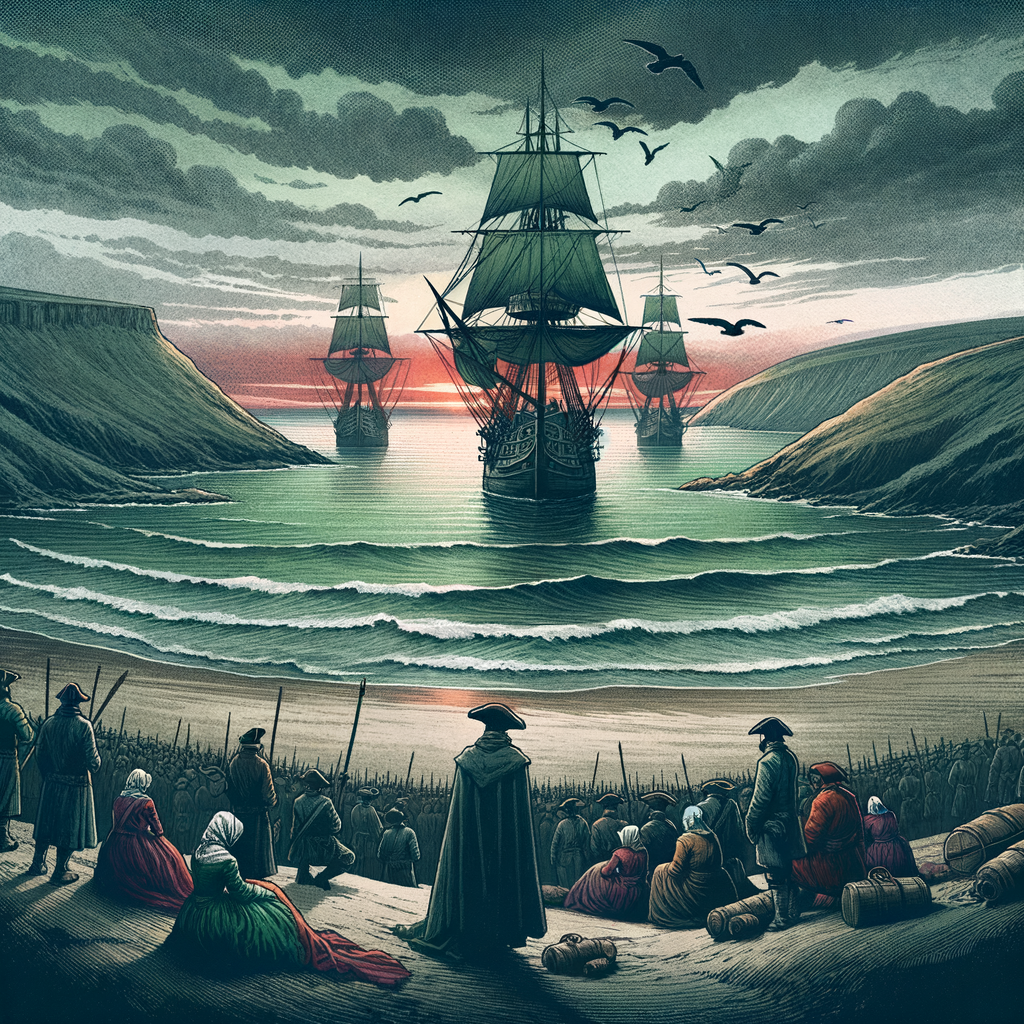
But the value of these Acadian tales extends far beyond bridging historical and contemporary humanitarian crises. They open a more profound discourse on the intersectionality of displacement, resilience and identity, reminding us of the intricate fabric of the refugee experience. Each tale underscores that while homelessness is a common thread weaving the refugee narrative, every bit of these narratives is uniquely layered, shaped by unique experiences and responses to adversity, just like that of every refugee today. Each navigates their journey differently and exhibits resilience in many ways.
Fundamentally, the contemporary resonance of Acadian tales reinforces the universality of human experience. These tales are not just a window into the past but mirror our current world politics and humanitarian concerns. They underscore the inherent dignity and resilience of displaced individuals amidst difficult realities, thus compelling us to address the refugee crisis with more nuanced understanding and empathy.
In essence, the penned narratives from 1755, while firmly rooted in their historical context, continue to resonate in the 21st-century refugee crisis, underlining the enduring strength of the human spirit. By employing a more panoramic view of refugee stories, we can shatter stereotypes, deepen our understanding of the refugee experience, and go beyond framing them as mere victims. Like the Acadians of yore, refugees today need nothing more than an opportunity to thrive as resilient beings and societal contributors.
The Acadian tales evidence why narratives matter in understanding complex human experiences. More so when these narratives come imbued with lessons of resilience and perseverance, offering a fresh perspective on the global refugee crisis. By adapting lessons from the past to interpret the present, we create an empathetic bridge spanning time. This bridge connects more than two disparate eras in history. It is a testament to the power of stories in transforming attitudes and fostering empathy, all the more relevant in our rapidly globalizing, interconnected world.

"Harnessing the Empathic Power of Acadian Parable Tale"
As a multidisciplinary contemporary artist and published author, I have an unwavering belief that the narratives within Acadian tales brim with a transformative power- not inherently obvious, but immensely potent nonetheless. These tales, if handled with empathic aplomb, can act as catalyzing agents for a novel wave of understanding and empathetic resonance. It is essential, therefore, to ask ourselves - how can this transmutative capacity of Acadian tales be tapped? How can we galvanize and point this narrative potential toward fostering a keener sense of empathy in conversations around global refugee crises?
In my experience as an artist, author, and educator, the answer rests in the intentional design of our narratives. Creatives are responsible for rendering real-life connections with these stories, not merely as a form of historical reminiscence but as an instrument that humanizes refugees. We ought to present their narrative in such a light that we do not detach the refugee from their humanity but, rather, celebrate it. We must challenge our audiences to empathize deeply with the refugees, prompting them to envisage not peripheral actors or mere statistics but real people pulsating with latent power and strength.
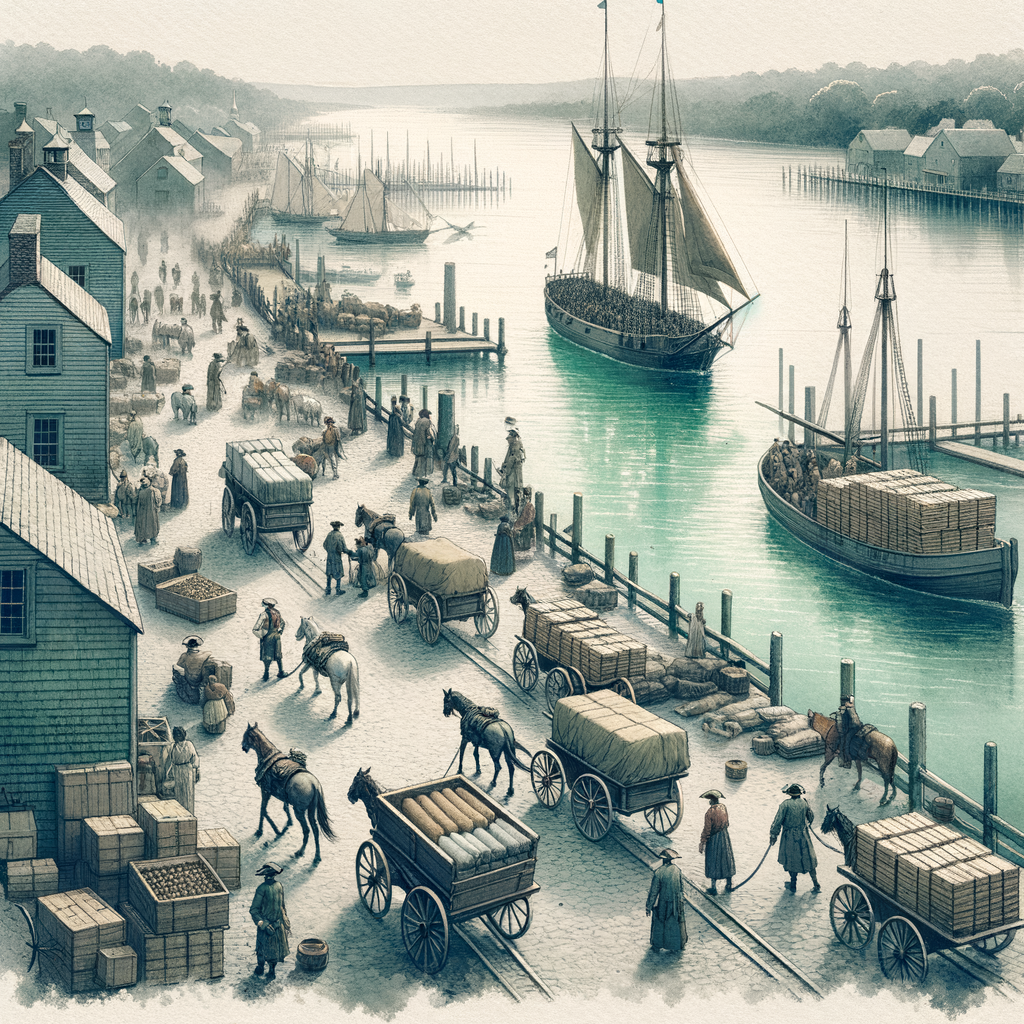
Embedding empathy into the narrative requires a craft that trusts its readers with the labour of engagement and the freedom of interpretation. As authors, we must deviate from sensationalized inadequacy or pitiful portrayals that reduce refugees to mere recipients of aid or, often, hopeless and helpless victims. We must consciously change our narrative palette, incorporating a generous brushstroke of resilience and strength synonymous with the refugee's experience.
Just as the Acadian children's tales offer a tapestry of historical truths, our contemporary narratives should also reveal the intricate shades of the refugee ordeal, painting a picture that makes the resilience in the human spirit visible. This crucial shift in how we write about refugees could disrupt the stereotype-ridden discourse on displacement and guide us into a conversation rooted in understanding and compassionate engagement.
Now, more than ever, the world needs to recognize and appreciate the power and pertinence of narratives in shaping perspectives. These narratives—of the Acadians, refugees, and global citizens—mirror our shared humanity. Harnessing this empathic power in Acadian tales, thrust into the context of our contemporary world, allows us to highlight and acknowledge the resilience refugees demonstrate.
In essence, Acadian tales operate like meticulously crafted mirrors, reflecting a society that too often wraps itself in comfortable ignorance when dealing with issues surrounding refugees. They serve as potent reminders, compelling us to examine and disengage from our assumed notions about refugees and ultimately guiding us to engage with the refugee crisis compassionately and emphatically.
Finally, we may incite a shift that engenders a more inclusive, compassionate world by harnessing the empathic power of narratives like the Acadian tales. Such a goal might appear distant, even romantic, but it is exactly the audacious vision that trails the transformational impact of storytelling in its wake. It nudges us closer to embracing the narratives of refugees, not as an abstract distinction but as a vibrant thread interwoven into the intricate, shared fabric of our global future.

